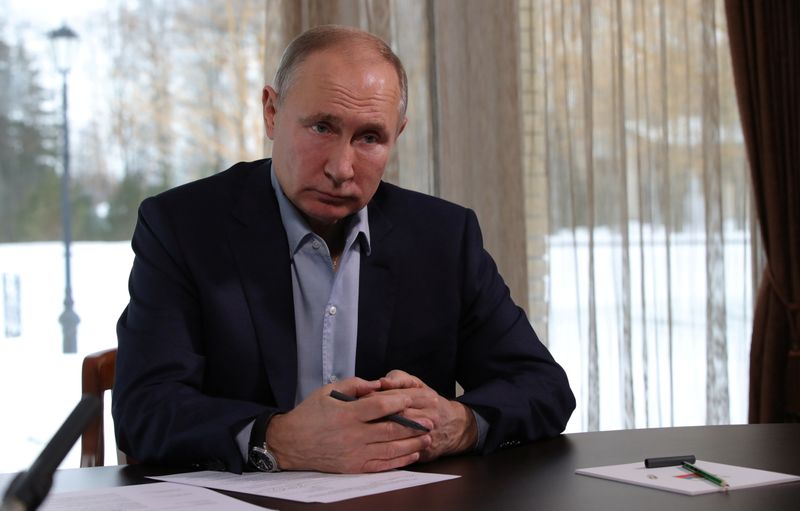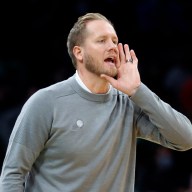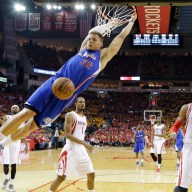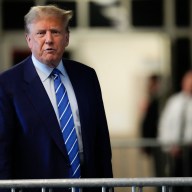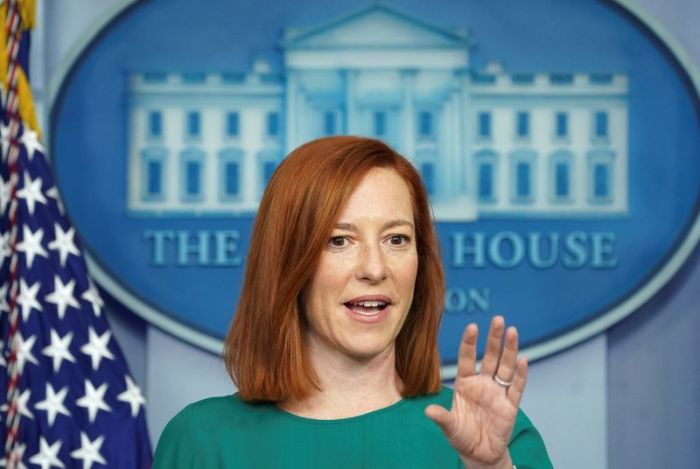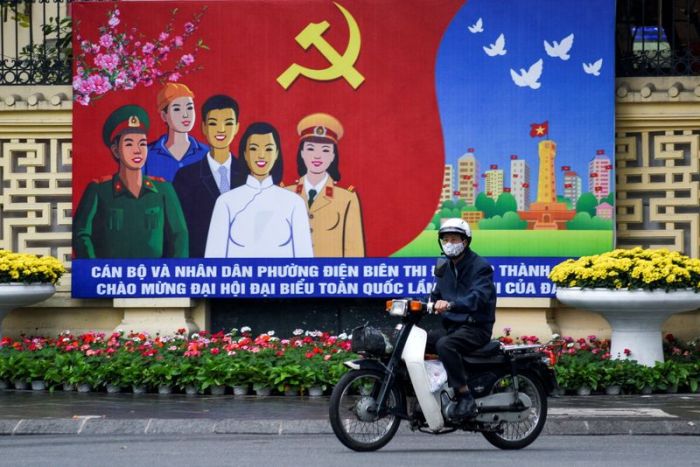MOSCOW (Reuters) – Russian President Vladimir Putin condemned weekend protests demanding the release of jailed Kremlin critic Alexei Navalny as dangerous and illegal, as the opposition politician’s allies said they planned a similar protest for Sunday.
Police detained more than 3,700 people and used force to break up rallies across Russia on Saturday as tens of thousands of protesters ignored extreme cold and police warnings to demand Navalny be freed from jail where he is serving a 30-day stint for alleged parole violations that he denies.
In a rare public rebuttal of a Navalny accusation, Putin rejected an allegation the critic made last week in a video – which has since garnered more than 86 million views on YouTube – that the Russian leader owned an opulent Black Sea palace paid for by his friends, sometimes using public money.
Putin, who avoids mentioning Navalny by name, also told students on Monday that people should not use illegal protest action to further their own political interests.
“Everyone has the right to express their point of view within the framework provided by the law. Anything outside the law is not just counter-productive, but dangerous,” said Putin.
He cited upheaval caused by the 1917 Russian Revolution and the 1991 collapse of the Soviet Union as examples of how illegal action could cause people misery and should therefore be avoided.
As Putin spoke, Leonid Volkov, a Navalny ally now outside Russia, announced plans for a protest this Sunday that would again demand Navalny’s freedom.
Saying he had not seen the video making the allegation about the Black Sea palace, although he had “scrolled through video compilations,” Putin said the property was not his.
“Nothing of what was indicated there as my property belongs either to me or to my relatives and never has belonged (to us). Never,” Putin said.
NO QUICK EU, U.S. ACTION
While demanding Navalny’s release, neither the European Union nor the United States suggested it would take quick action to raise pressure on Russia.
The European Union said it would refrain from fresh sanctions on Russian individuals if the Kremlin releases Navalny after 30 days, adding it would send its top diplomat to Moscow next week.
U.S. President Joe Biden, who is seeking a five-year extension of the New START arms control treaty with Russia before it expires on Feb. 5, said he would not hesitate to criticize Moscow, but announced no new actions.
“We can both operate in the mutual self-interest of our countries as a New START agreement, and make it clear to Russia that we are very concerned about their behavior, whether it’s Navalny, whether it’s the SolarWinds, or whether it’s reports about bounties on the heads of Americans in Afghanistan,” he said.
Biden said he had requested an update on the massive cyber hack blamed on Russia that used U.S. tech company SolarWinds Corp as a springboard to penetrate federal government networks, and on media reports that Russia had offered bounties to Taliban-linked militants to kill coalition forces, including Americans, in Afghanistan.
“I will not hesitate to raise those issues with Russia,” he told reporters.
Moscow has denied involvement in the hack of SolarWinds and brushed off allegations of offering bounties for U.S. troops.
Tensions between Moscow and Washington have flared over the Navalny protests.
Russia’s foreign ministry said it had issued a diplomatic protest to U.S. Ambassador to Russia John Sullivan over what it viewed as interference in its domestic affairs.
It said it took exception to social media posts by the U.S. Embassy that it alleged supported the illegal protests and to what it called an unacceptable State Department stance.
(Reporting by Vladimir Soldatkin, Darya Korsunskaya, Anton Zverev and Tom Balmforth and Alexander Marrow; Additional reporting by Robin Emmott in Brussels and Alexandra Alper, Steve Holland and Arshad Mohammed in Washington; Editing by Andrew Osborn and Peter Cooney)

